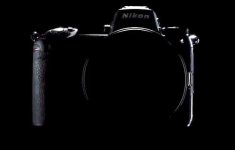aizan
Veteran
IBIS for medium format would be a delight after all of those slow-ish lenses and comparatively noisy-ish sensors.
It's also important for video, which a lot of people hope this mirrorless camera will be good at.
It's also important for video, which a lot of people hope this mirrorless camera will be good at.


